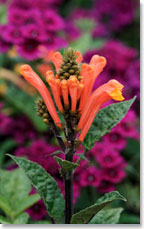 Scutellaria lateriflora, also known as Blue Skullcap, Hoodwort, Virginian Skullcap, Mad-dog Skullcap, is a hardy perennial herb native to North America. Native Americans as well as traditional European herbalists have used skullcap to induce sleep, relieve nervousness, and moderate the symptoms of other diseases related to the nervous system. In addition, skullcap functions as an herbal sedative.
Scutellaria lateriflora, also known as Blue Skullcap, Hoodwort, Virginian Skullcap, Mad-dog Skullcap, is a hardy perennial herb native to North America. Native Americans as well as traditional European herbalists have used skullcap to induce sleep, relieve nervousness, and moderate the symptoms of other diseases related to the nervous system. In addition, skullcap functions as an herbal sedative.
A comprehensive review of several studies found that there were 27 herbal medicines and formulas that were particularly effective in treating a broad range of psychiatric disorders, including general anxiety and obessive compulsive disorder. Most notably passion flower and skullcap were suggested for anxiety disorders, and kava for phobic, panic and obsessive compulsive disorders.
Placebo-controlled research found that skullcap reduced general anxiety levels in healthy volunteers. Additionally, a meta-analysis of skullcap determined that the flavonoids baicalin, baicalein, and aglycone, along with the amino acids GABA and glutamine found in skullcap play a role in its anxiolytic activity. In particular, baicalin and baicalein are known to bind to the benzodiazepine site of the receptors in the brain associated with anxiety.
One type of skullcap, known as “Blue Skullcap,” contains chrysin glucuronide, a naturally occurring flavone that can increase testosterone. Studies done in Europe found that after supplementing with chrysin blood serum levels of testosterone went up 30 percent. Because of this action, chrysin is sold as a nutritional supplement for male body builders because of its possible action in inhibiting the conversions of androgens to estrogens.